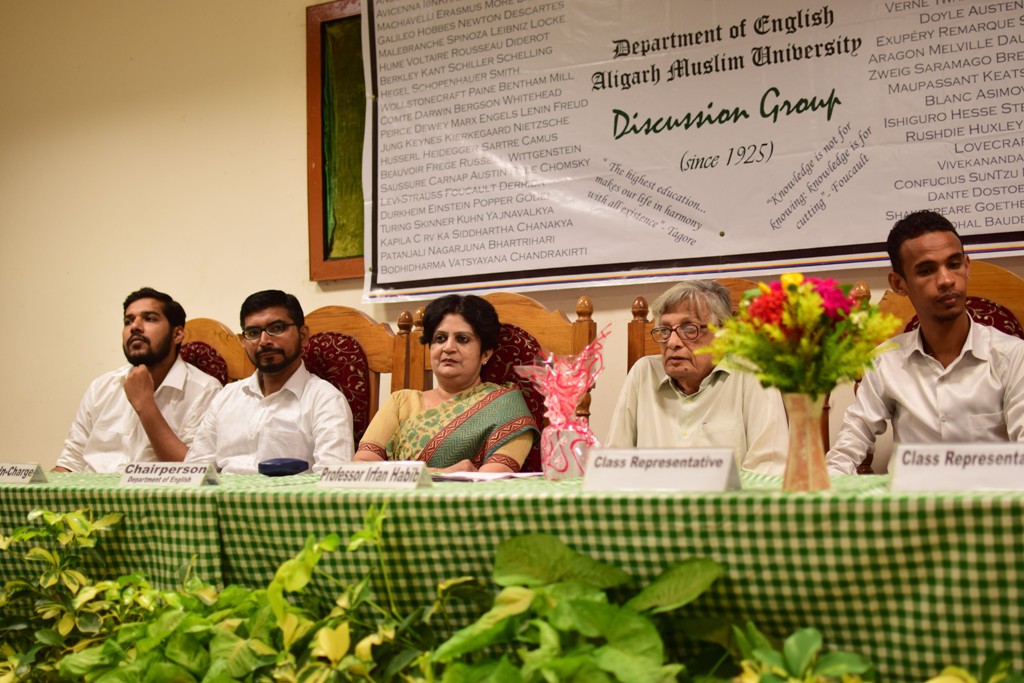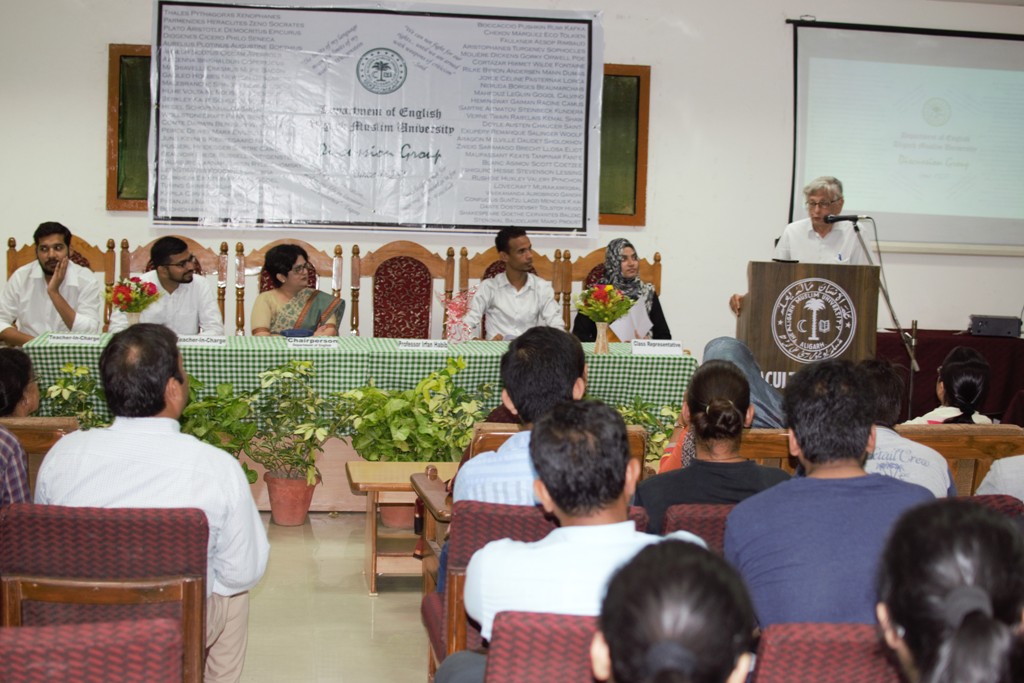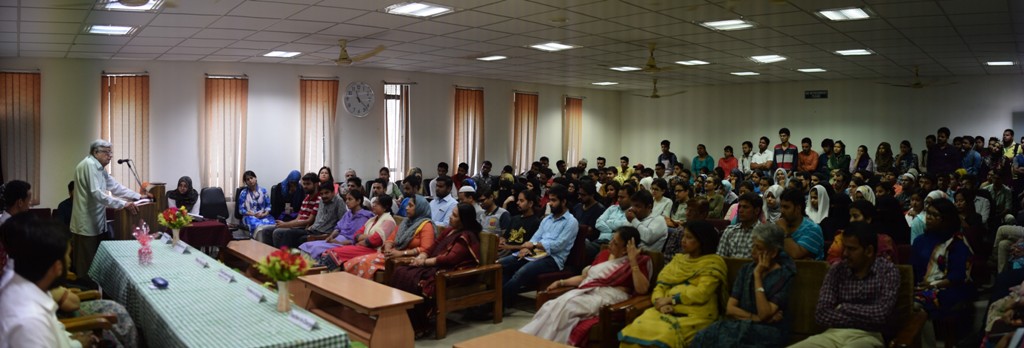Irfan Habib talks on Wordsworth and French revolution at AMU


TCN News
Aligarh: “Bliss was it in that dawn to be alive, but to be young was very heaven,” wrote William Wordsworth on the spirit of French Revolution. The English poet Wordsworth’s thoughts on French Revolution were revisited in a special lecture by Professor Irfan Habib (Padma Bhushan and Professor Emeritus, Aligarh Muslim University).
Prof Habib delivered a lecture on ‘Wordsworth and the French Revolution’ in the inaugural function of the ‘Discussion Group’ of the Department of English, AMU at the varsity’s Faculty of Arts Lounge.
[caption id="attachment_416101" align="aligncenter" width="1024"] Prof Irfan Habib addressing during the inaugural function of Discussion Group[/caption]
Prof Irfan Habib addressing during the inaugural function of Discussion Group[/caption]
He emphasized the deep impact, French Revolution had on Wordsworth. In the mesmerising speech, Prof Habib said that Wordsworth’s call for alleviation of poverty is unprecedented across English literary history.
Prof Habib discussed how Wordsworth in his youth ardently supported the French Revolution and how the great poet hoped that the principles animating the revolution would extend beyond France to other parts of the world. He also talked about his student days in the Department of English in the 1950s.
Prof Seemin Hasan (Chairperson, Department of English) highlighted the eminent scholarly contributions made by Prof Habib to the field of Historical Studies and critical interventions in the public discourse. Dr Muneer A K, (Teacher-in-Charge) introduced the office bearers of the Discussion Group. Mr Abdulqadir Onin (Phd student and class representative) presented a short report based on the activities carried out by the Discussion Group over the past semester.

The lecture was followed by a brief interactive session in which Prof Habib answered queries of students and faculty members. Mr Md Danish Iqbal proposed the vote of thanks. Ms Sadra Samreen conducted the programme. The ‘Discussion Group’ of the Department of English was founded in 1925 as a forum for the students to share ideas and initiate dialogues across a wide variety of areas, time periods and methodologies.
